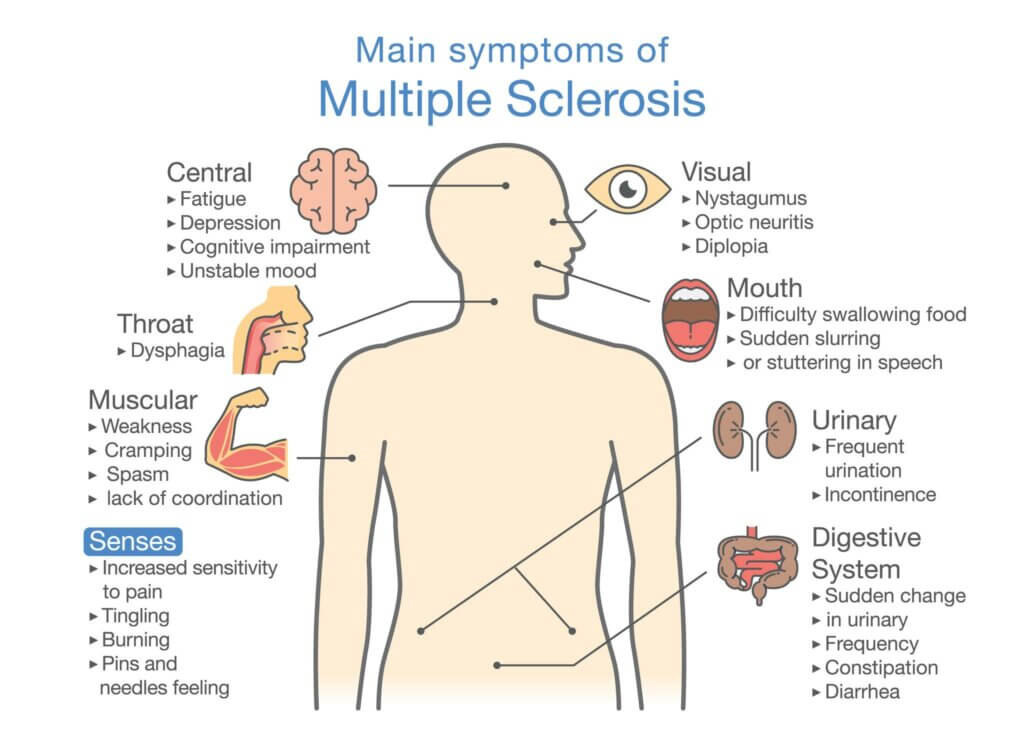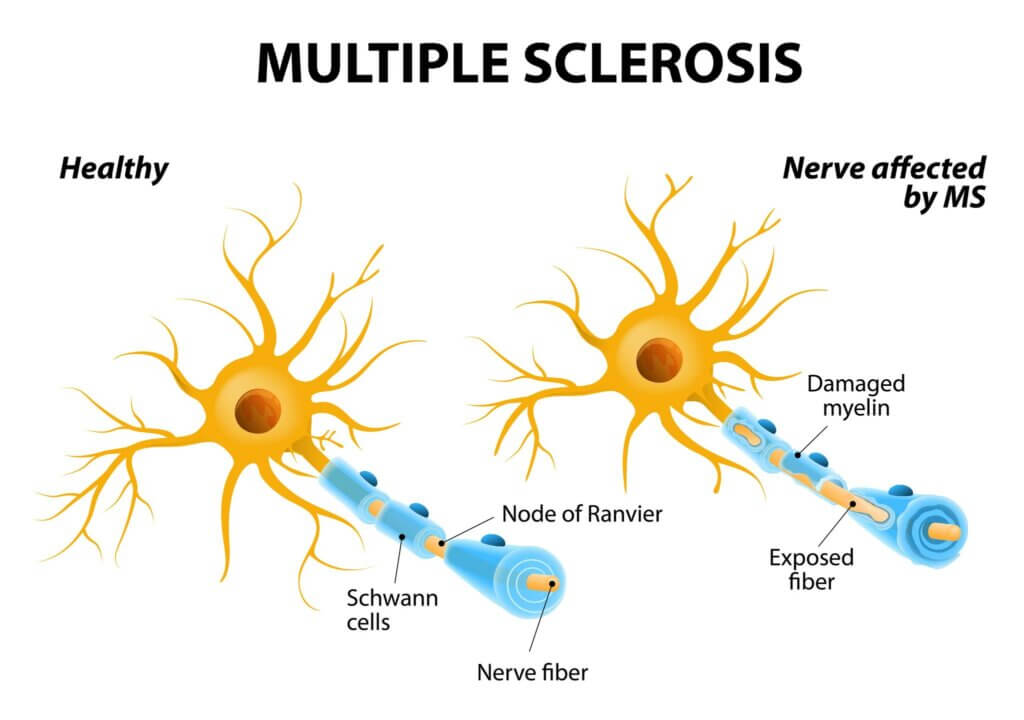

Want to learn more about MS?
Multiple Sclerosis, commonly known as MS, is Australia’s MOST COMMON chronic neurological disease. Although MS affects over 25,600 Australian, to date there is no cure [Multiple Sclerosis Australia, 2022].
In MS, the body’s immune system accidentally attacks and damages the protective layer which covers the body’s nerves. Damage to the protective layer leads to inefficient transmittance of the messages sent from the brain to the rest of the body.
Ultimately, the brain can no longer communicate properly with the body leading to symptoms such as:![]() A loss of motor function (walking and limb function)
A loss of motor function (walking and limb function)![]() Loss of Sensation
Loss of Sensation![]() Pain
Pain![]() Vision Disturbances
Vision Disturbances![]() Cognitive changes to thinking and memory
Cognitive changes to thinking and memory
Individuals diagnosed with MS commonly experience difficulty with independently completing their activities of daily living, such as cooking, cleaning, grooming and connecting with the local community. Copious sources of research have shown the positive benefits and effects of exercise on symptom management and increased independence levels.
Our Exercise Physiologists at Vector Health and Performance are well-equipped to work closely with individuals diagnosed with Multiple Sclerosis in order to manage symptoms and work towards regaining some independence. Some of the benefits individuals that participate in exercise are:![]() Improved physical fitness
Improved physical fitness![]() Improved balance
Improved balance
🚶 Improved gait![]() Improved cognition and fatigue levels
Improved cognition and fatigue levels![]() Reduced pain
Reduced pain![]() Increased levels of community participation and socialisation
Increased levels of community participation and socialisation
The burden of MS has both personal and societal impacts, and this extends into participation in optimal health behaviours, such as exercise participation. Upwards 80% of persons with MS do not engage in sufficient amounts of exercise necessary for health-related benefits.
Systematic reviews and meta-analyses have concluded that exercise training can improve physical fitness and walking mobility, balance, cognition, fatigue, depressive symptoms, and quality of life. There is evidence indicating that exercise has a positive effect on the hippocampus, sleep quality, and cardiovascular and metabolic comorbidity. Exercise training has emerged as a safe, effective, low-cost, nonpharmacological intervention for managing disability experienced by persons with MS.
Maddi Law – Exercise Physiologist
